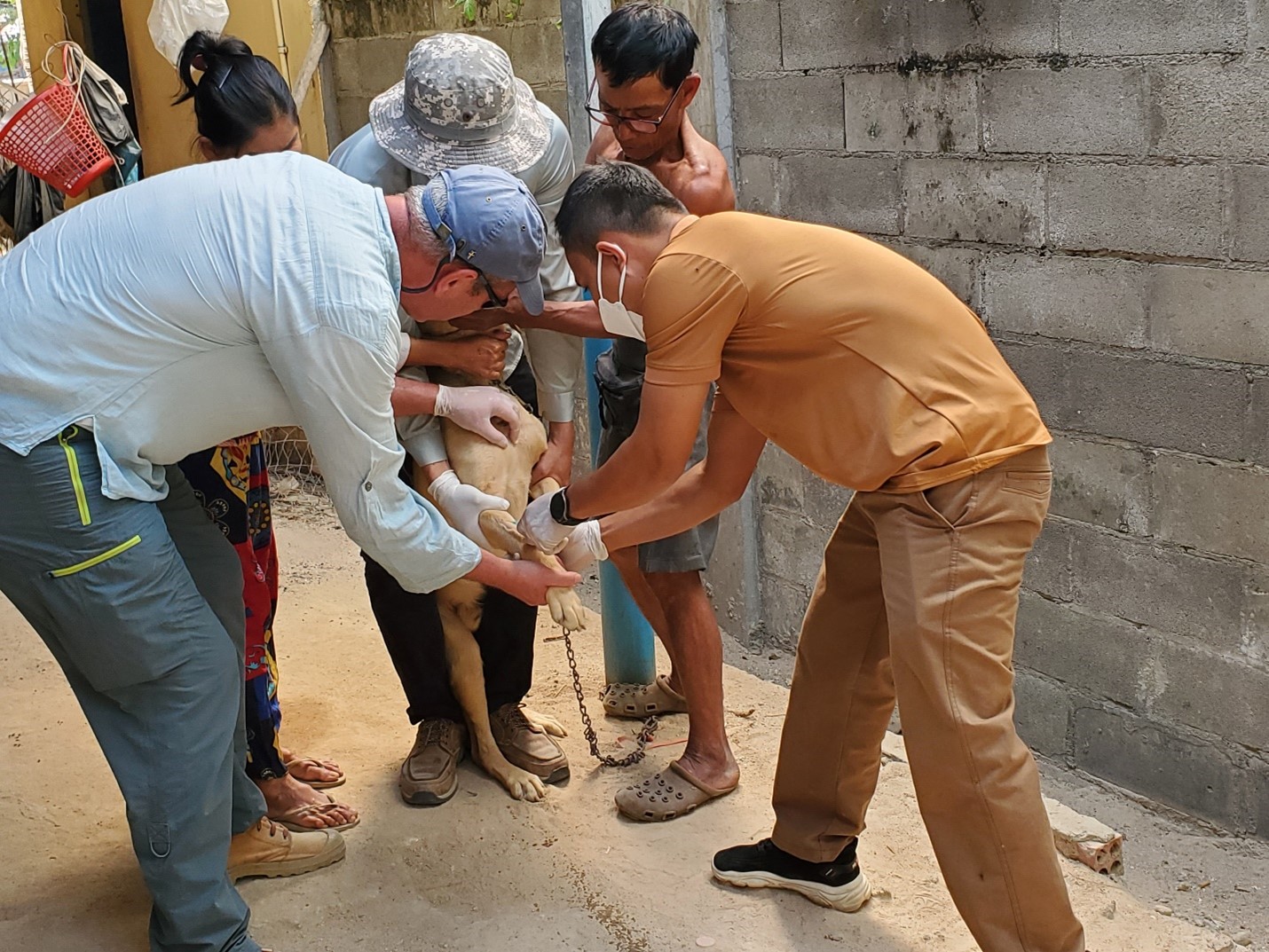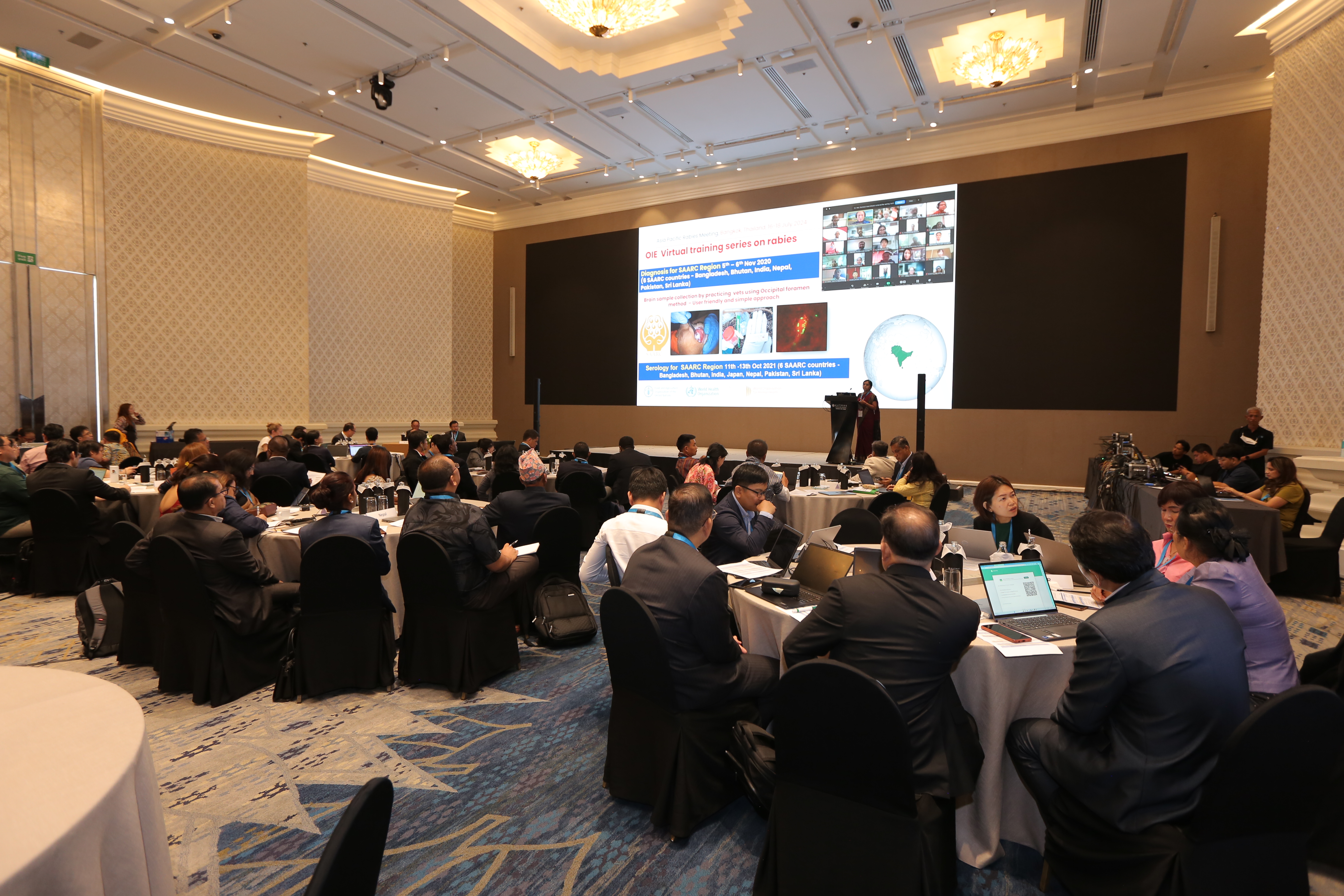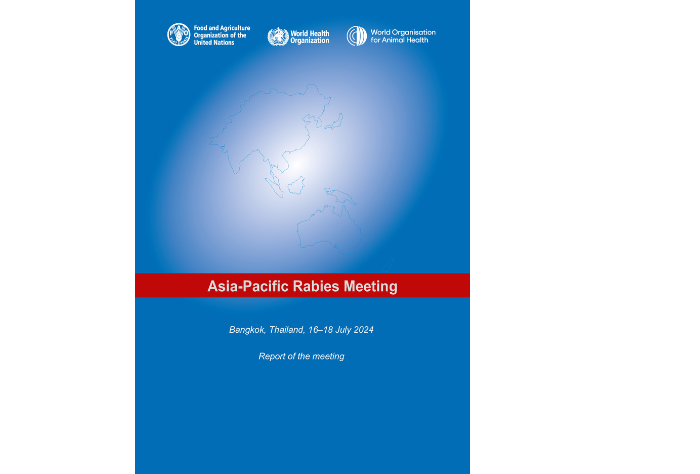
Rabies is endemic throughout the Asia Pacific (AP) Region except for Australia, Brunei, Japan, Maldives, New Zealand, Papua New Guinea, Singapore, and the Pacific Island Countries. Recently, Timor-Leste, a country historically free of rabies, reported outbreaks in domestic dogs and its first human rabies case.
To support prevention and control of rabies in endemic countries, the World Organisation for Animal Health (WOAH) together with its Regional Tripartite (FAO-WHO) organized the ASEAN-Tripartite Rabies Meeting, 4-6 December 2018, Hanoi, Vietnam, jointly with the ASEAN secretariat and the SAARC-Tripartite Rabies Meeting, 26-28 June 2019, Kathmandu, Nepal, jointly with the SAARC secretariat.
Since then, some progress has been made as endemic countries have established national rabies control programmes, and, in most of them official National Strategic Plans for rabies control are available. Many countries have increased their capacity on intradermal vaccinations, laboratory diagnosis of human and animal rabies as well as implementation of effective dog vaccination programmes. However, COVID-19 pandemic has reversed progress in many countries. To reach the global goal of zero human deaths from dog-transmitted rabies by 2030, there is a need to enhance disease surveillance in humans and animals; advocate multisectorial collaboration across sectors; mobilize resources, enhance and sustain capacity for rabies control in both sectors; enhance cross-border coordination including outbreak investigation/response and raise awareness in at-risk communities.
New tools and innovations have also emerged since the last meeting. This includes: the launch of the United Against Rabies (UAR) Forum by the Tripartite that brings stakeholders together to align activities, and provides a platform for the sharing of information and expertise; the launch of the Global NTD Roadmap 2030; Tripartite’s recommendations for field application and integration of oral vaccination of dogs against rabies into dog rabies control programmes; expanded use of monoclonal antibodies against rabies, digital tools for real-time monitoring of dog vaccination campaigns and for One Health surveillance, new guidance on Integrated Bite Case Management, WHO’s Regional Technical Advisory Group for dog-mediated rabies and the launch of WOAH’s South Asia Rabies Laboratory Network.
The Regional Tripartite convened the Asia Pacific Rabies Meeting on 16-18 July in Bangkok, inviting representatives of rabies-endemic countries in the region to discuss key progress, challenges and ways forward in accelerating actions to reach the global goal of Zero by 30.
The meeting included 42 government representatives from 14 rabies-endemic countries from the human and animal health sector across the Asia Pacific Region, including Bangladesh, Bhutan, Cambodia, India, Indonesia, Lao PDR, Malaysia, Mongolia, Nepal, Philippines, Sri Lanka, Thailand, Timor-Leste and Vietnam. Additionally, 31 regional and global Tripartite representatives, 21 experts and other partners participated in the meeting.
Besides country and expert presentations, other activities included facilitated country poster walks, panel discussions, “ask-the-pro” sessions during coffee breaks, a World Café exercise and a mini-workshop on Integrated Bite Case Management (ICBM). These allowed participants from diverse and discrete sectors to assess collaboration and identify gaps and opportunities for improvement.
The meeting resulted in key progress, including:
However, with only 6 more years to go until 2030, several challenges are still prevalent. These include a lack of political commitment, insufficient funds, sub-optimal intersectoral coordination, underreporting of cases and weak diagnostic and surveillance capacity especially at the field level, quality issues with human and canine vaccines, cross-border incursion, gaps in community engagement and sub-optimal dog population management.
The meeting came up with recommendations for countries, Tripartite and Partners to implement accelerated activities to reach the global goal of elimination of dog-mediated rabies by 2030.
(2024 July) Asia Pacific Rabies Meeting Report
Agenda: PDF (with presentations linked)
Recommendations: PDF
Meeting report: Reviewed and edited by the Tripartite group of organisations (FAO, WHO, and WOAH), we recently published the Asia-Pacific Rabies Meeting Report, which is available to read and download now, via the button below.
Read the report




